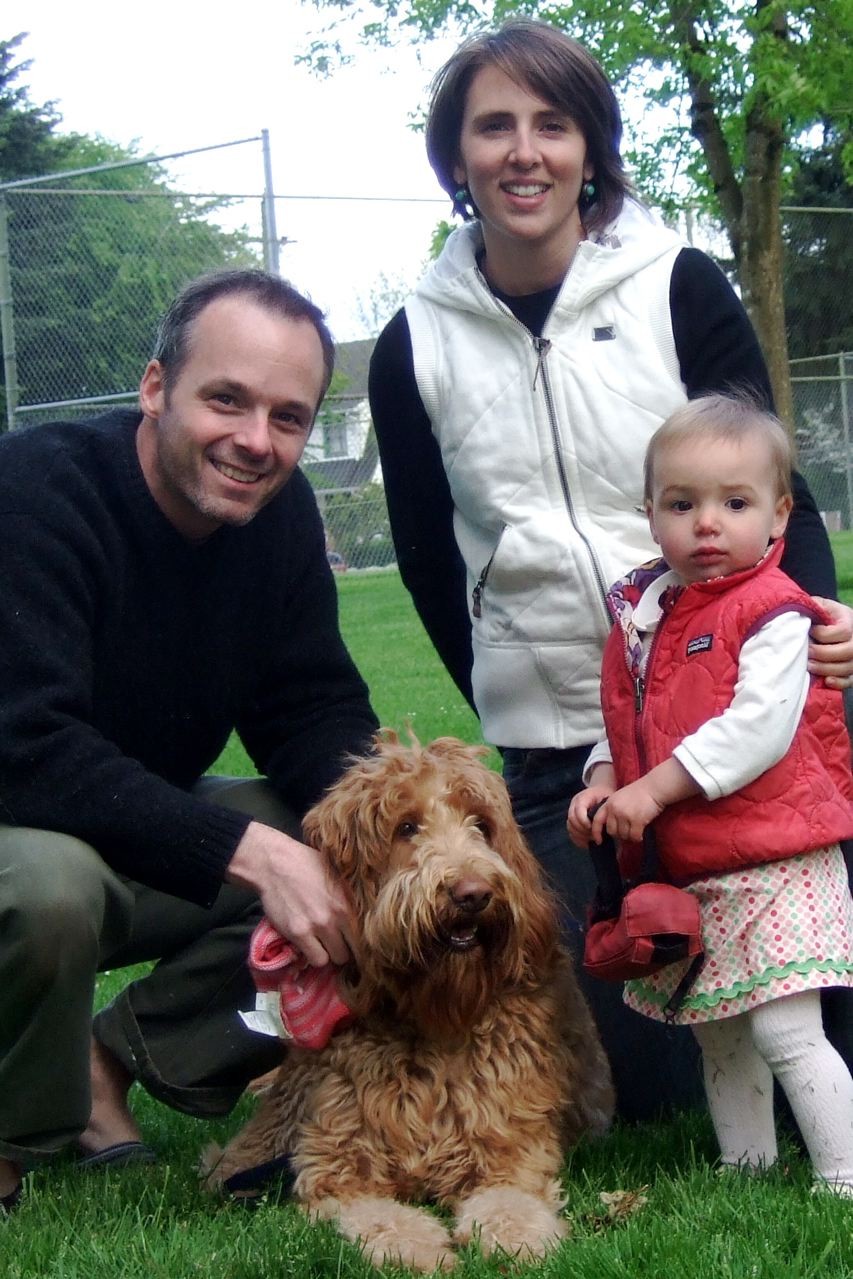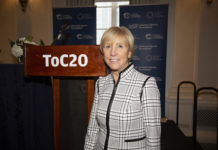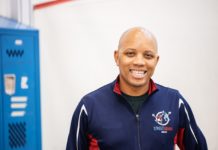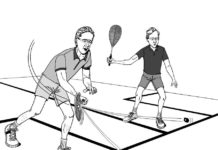By Jennifer Gabler
As someone who has recently returned to playing squash after a 12 year layoff, I was excited to interview other women and find out why they play and how they have stayed connected with the sport. These multi-talented women represent a very diverse spectrum of involvement with the game. Whether earning a living in squash or simply using the sport to stay connected with family and friends, everyone I interviewed made me proud to be a woman squash player and broadened my understanding of the possibilities for women in this sport.

Katherine Johnson Rowan
As many of us find in our busy adult lives, Katherine Johnson Rowan, a top junior and college player, who won eight national junior titles and the intercollegiate singles championship at Harvard, has struggled to find the perfect balance between work, family and time for herself. Rowan, who trained five days a week as a junior and college player, found she was only playing once or twice a week on league match nights after college. It was difficult to maintain the top form that she was used to during her junior and college years. After graduate school, she became an elementary school teacher. As a first year teacher she could not find the time to play squash on even one night, so she dropped out of the game. Her squash story could have ended right there, but it didn’t.
In addition to her elementary school teaching, Rowan became an assistant pro under Peter Briggs at the Apawamis Club in Rye, NY, and she also coached juniors at several camps. She moved three times, to San Francisco, Boston and finally to Portland, OR, which she continues to call home. Each time she moved she immediately joined a squash club to get connected to her new home, even though she unable to play consistently. Squash had always meant not just exercise and competition, but also camaraderie and new experiences.
Three years ago, a friend in Portland, Andrea Bowen, encouraged her to pick up a racquet again and play in a local tournament. Rowan had settled into teaching and wanted to reconnect with squash, but it was difficult to regain her mental toughness for competition, and the fitness “re-entry” was painful. In 2006, Rowan gave birth to a daughter but got back on the court after only eight weeks off. Squash helped her combat the feelings of isolation many new mothers encounter by connecting with others outside the home. Getting regular exercise also allowed her to recover from pregnancy faster.
Rowan played in the 2007 U.S. Open Squash Championships, hosted at the Multnomah Athletic Club, and she played in the 2007 Howe Cup in Boston on the Portland A team. One bonus of traveling to Boston was that she was able to see her Connecticut-based sister, Marie Johnson Vlcek, who came up to play in the Howe Cup doubles tournament. Rowan says, “Marie is one of my greatest supporters and has also reconnected with squash in a wonderful way.”
After a decade of being in and out of squash, Rowan has realistic expectations of how squash can fit into her adult life. She plays several times a week, combining both singles and doubles play. She has come to accept that her peak squash years may be behind her but is now excited to step on the court just for the thrill of “getting out there.”
Mary Belknap McKee
Mary Belknap McKee is part of a large squash playing family. All three Belknap sisters, Mary, her twin Berkeley Belknap Revenaugh and older sister Lee Belknap, took up squash (at 10 years old for Mary) at the Heights Casino in Brooklyn, NY. Mary had played tennis for a few years under the guidance of Carol and Fred Weymuller before starting her squash career with David Temple and Baird Haney as her coaches at the Casino. At the end of her junior career, she was recruited and played for Princeton from 1989 to 1992. After college, she combined work and further studies with playing WISPA events from 1992-1994.
As a junior, the emphasis was on playing well individually, focusing on rankings and ultimately college recruitment. Mary and her sisters loved competing, and tournaments were a family event with friends piling into the station wagon for trips to Philadelphia or Boston. In college, it was all about the team. That focus translated into Princeton winning the Collegiate National Team Championship two out of her four years.
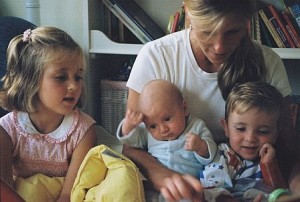
Mary played a fair amount of doubles at the Casino while growing up, but she started playing more regularly during graduate school (Harvard School of Design where she received a Masters in Architecture in 2001). She now plays on the newly formed Professional Women’s Doubles Squash Tour teamed with her sister Berkeley. She is a two-time National Doubles finalist, a World Doubles finalist in 1998, a 2007 National Doubles semifinalist, a 2007 Mixed Doubles semifinalist and a 2008 Mixed Doubles finalist.
Off the court, Mary works four days a week as a partner in an architecture firm in Boston. She adroitly balances the demands of work and maintaining a family with three small children—Emma (6), Jake (3) and Ross (1)—and playing squash, both singles and doubles at the University Club in downtown Boston.
Despite the work and family demands, Mary believes it is important to fit squash into her life. Squash is how she stays in shape (she plays about four times per week), and she still loves to compete. As she says, “I make time for squash because the more I play the better I feel.” Traveling to doubles tournaments is also a way to keep in touch with her two sisters, Berkeley (San Francisco), and Lee (Connecticut). She also shares her love of squash with her husband, Michael McKee, a former NHL player whom she met at Princeton.
Belknap has always made time for squash in her life. She even played through her three pregnancies! The last time she was pregnant, she played in the Massachusetts State Doubles finals in May and delivered her child in July. She encourages women who work and/or have children to play frequently as an adult, as “you cannot get a better workout and it is much more fun than going for a run.” The social component is also great for connecting with other women and squash players.
Mary Belknap McKee has found the perfect balance in her life between squash and family. She has combined these two elements well by transforming her husband and daughter into squash players and using squash travel to reconnect with her sisters. In the process, Mary is recreating the family experience that she had growing up.


